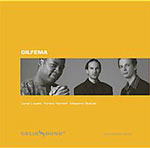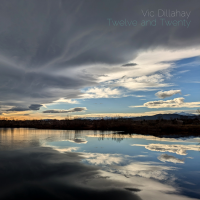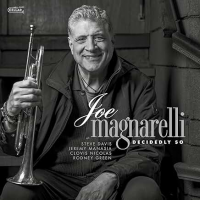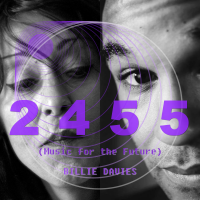Home » Jazz Articles » Multiple Reviews » Still More Verve Vocalists: New LPRs
Still More Verve Vocalists: New LPRs
 Sarah Vaughan
Sarah Vaughan
After Hours At the London House
1958
After hours concerts occur during the quiet time between the closing of the bars and the break of dawn, after regular gigs. They give musicians a chance to play a little longer and their ardent fans the chance to see them without the nuisance of the bar-going crowd. This particular gig was hastily setup for a recording session. Vaughan had already done three shows that night, yet agreed to appear here with her working trio and a few recruits from Basie's band. Huddled on the small bandstand and peppered with flash bulbs from eager reporters, Vaughan and company turned in a marvelous performance in just over two hours. As one might expect from the circumstances, the program consists mainly of well-known, fairly simple tunes that the players could handle relatively clam free. But few could invest a standard with as much grace and dignity as Vaughan, who shows no sign of weariness from the long night and displays her abundant vocal chops on eight songs. Basie sidemen Frank Wess, Thad Jones, Wendell Culley, and Henry Coker add to the fun by performing obligato or stepping up for a full-fledged solo. There aren't any surprises here, just a well-crafted live session featuring excellent playing by a group of musicians who yearned to create memorable performances after their regular gigs.
 Jimmy Witherspoon with Brother Jack McDuff
Jimmy Witherspoon with Brother Jack McDuff
The Blues Is Now
1967
The cover of The Blues Is Now, which features angry headlines literally ripped from the papers, suggests an album of social protest grown during the turbulent mid-sixties. However, the album is simply a conventional R&B effort from vocalist Jimmy Witherspoon featuring orchestrations by organist Jack McDuff. The opener "Sweet Slumber is a drowsy blues backed by strings, but things quickly switch to a higher gear with the randy "I'm Going To Move To The Outskits Of Town and the slightly twisted "Past Forty Blues. McDuff huffs behind the horn section, which has the precision of a drill team, and rarely steps out front to solo. Most of the spotlight is given to Melvin Sparks, whose prickly solos are the perfect foil for Witherspoon. The vocalist turns in a fine performance of passion and beauty, and the group really turns up the heat on the famous "Good Rocking Tonight.
 Dinah Washington
Dinah Washington
I Wanna Be Loved
1961
Dinah Washington was always at home when backed by a small group and belting out bluesy numbers, but a strings album was inevitable given their popularity at the time. However, I Wanna Be Loved is a terrific album that proves that even when using a cookie-cutter approach, with the right ingredients you can still turn out pretty terrific cookies. The arrangements, mostly by a young Quincy Jones, give the right support to Washington and make use of sidemen like guitarist George Barnes, trumpeter Joe Newman, and trombonist Billy Byers to add the right amount of spice. Jones even pulls off the unlikely feat of using a vocal group without making it sound awful. Washington often sits in the shadow of Ella Fitzgerald, but approaches the material with the perfect balance of jazz chops and pop sheen. The lyrics of love lost and longing suit Wasington's delivery perfectly.
 Marlena Shaw
Marlena Shaw
The Spice Of Life
1968
Lyrics of social protest, wah wah guitars, electric bass, rock rhythms: these are all hallmarks of a late sixties vocal album, a time when jazz artists frequently had to borrow from rock'n'roll merely to stay afloat. Marlena Shaw was one of the new stars to emerge during this period and The Spice Of Life, her second album, showcases an artist with tremendous potential. "Woman Of the Ghetto and "California Soul are the two classics that kept people scouring the record bins, but the rest of the album is an appealing blend of jazz, R&B, and blues with inventive arrangements by Richard Evans and Charles Stepney that harness the power of the advances in electronic gimmickry. Many similar efforts sound dated today, losing their emotional power in trendy approaches. The Spice Of Life still holds up well as a fine piece of sixties soul.
After Hours At The London House
Tracks: 1. Like Someone In Love 2. Detour Ahead 3. Three Little Words 4. I'll String Along With You 5. You'd Be So Nice To Come Home To 6. Speak Low 7. All Of You 8. Thanks For The Memory.
Personnel: Sarah Vaughan - vocals; Wendell Culley, Thad Jones - trumpet; Henry Coker - trombone; Frank Wess - tenor saxophone; Ronnell Bright - piano; Richard Davis - bass; Roy Haynes - drums.
The Blues Is Now
Tracks: 1. Sweet Slumber 2. I'm Gonna Move To The Outskirts Of Town 3. Past Forty Blues 4. S.K. Blues 5. Late One Evening 6. Part Time Woman 7. Good Rocking Tonight 8. I Won't Tell A Soul 9. My Baby's Quit Me 10. My Money's Long This Morning, Baby.
Personnel: Jimmy Witherspoon - vocals; Brother Jack McDuff - organ, arranger, conductor; Danny Turner - saxophones; Leo Johnson - tenor saxophone, flute; Melvin Sparks - guitar; Jymie Merritt - bass; Ray Appleton - drums.
I Wanna Be Loved
Tracks: 1. I Wanna Be Loved 2. Don't Explain 3. Everybody's Somebody's Fool 4. Invitation 5. You're Crying 6. Let's Fall In Love 7. When You're Lover Has Gone 8. A Stranger In Town 9. God Bless The Child 10. Blue Gardenia 11. I Can't Face The Music 12. Sometimes I'm Happy.
Personnel: Dinah Washington - vocal; Quincy Jones, Billy Byers, Ernie Wilkins - arranger, conductor; various others.
The Spice Of Life
Tracks: 1. Woman Of The Ghetto 2. Call It Stormy Monday 3. Where Can I Go? 4. I'm Satisfied 5. I Wish I Knew How It Would Feel To Be Free 6. Liberation Conversation 7. California Soul 8. Go Away, Little Boy 9. Looking Through The Eyes Of Love 10. Anyone Can Move A Mountain.
Personnel: Marlena Shaw - vocals; Richard Evans, Charles Stepney - arranger, conductor.
Tags
PREVIOUS / NEXT
Support All About Jazz
 All About Jazz has been a pillar of jazz since 1995, championing it as an art form and, more importantly, supporting the musicians who make it. Our enduring commitment has made "AAJ" one of the most culturally important websites of its kind, read by hundreds of thousands of fans, musicians and industry figures every month.
All About Jazz has been a pillar of jazz since 1995, championing it as an art form and, more importantly, supporting the musicians who make it. Our enduring commitment has made "AAJ" one of the most culturally important websites of its kind, read by hundreds of thousands of fans, musicians and industry figures every month.






















